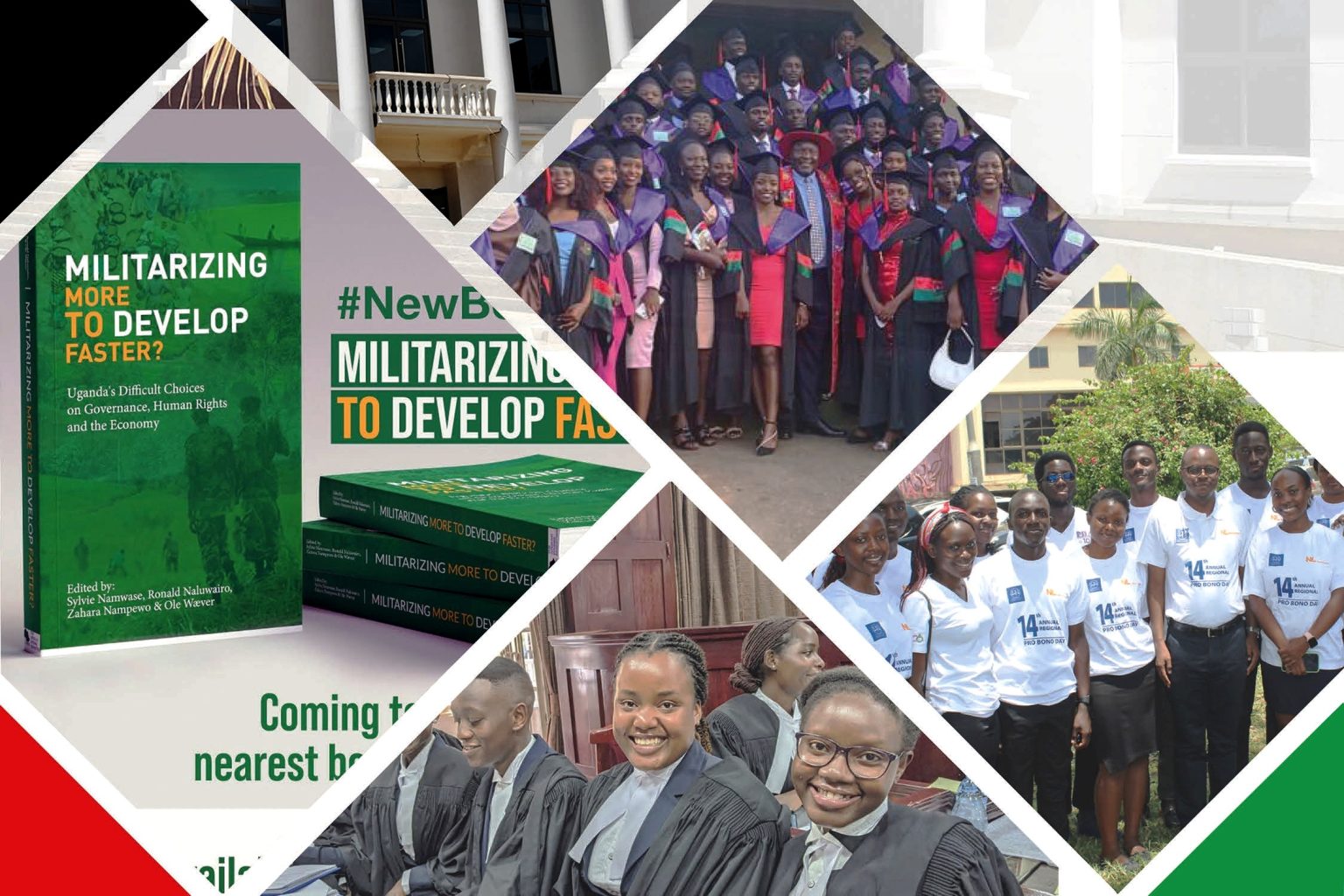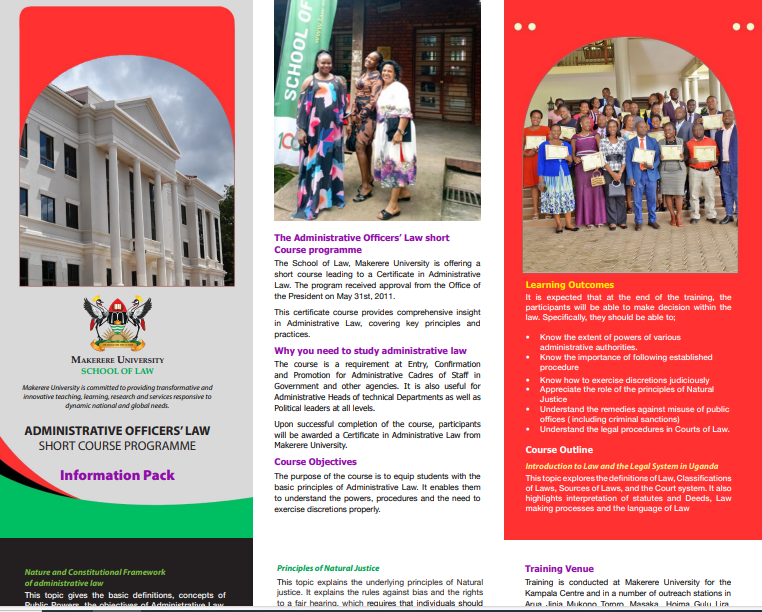Family Law Books Unveiled
The Deputy Chief Justice, Alfonse Owiny Dollo has commended the authors of the two publications on Family Law launched at Sheraton Hotel on Friday 24th November 2017.
The Books are entitled; The Politics of Putting Asunder: The Family, Law and Divorce in Uganda and The Case Book on divorce Law: Actualizing the 1995 Constitution.
They were jointly authored by Legal academics majority of whom are from the School of Law that included Dr. Maria Nassali,Prof. Sylvia Tamale, Dr. Damalie Naggita Musoke, Dr. Zahara Nampewo, Ms. Patricia Atim, Dr. Monica Twesiime Dr. Muhammad Ssewaya from IUIU as well as Dr. Dianah Musoke from the Law Development centre.
Hon Justice Owiny Dollo commended the efforts of the authors for a great contribution that exhibited expertise in the field of family lawwhich he said, was a great contribution towards building new knowledge that was necessary for promoting equitable and inclusive family relations.
He called for further study on the role of the woman in the traditional African setting before colonization, saying that there was a general perception that the woman then was treated as an object and marginalized. Citing examples from his own culture among the Luo, the Deputy Chief Justice observed that the woman played a pivotal role in keeping the home and society together and that marriage was between families and not individuals which was a source of security. He said the first court of judicature to handle family relations was what he termed as the present day sengas, a practice that helped ensure peaceful family relations.
He called upon the legal brains to make further investigations about the positive attributes of the traditional societies saying that there were a number of anthropologists living with libraries in their heads, who need to be reached to gather knowledge.
Dr. Christopher Mbazira, the Principal School of Law said the launch of the two books was a special event in the field of academia and legal practice in Uganda. Citing the publication on ‘The Politics of Putting Asunder: Family Law and Divorce in Uganda’, he said the book dealt with a subject of domestic relations which he said was neglected in legal research although very relevant to human existence and welfare and that the book was pertinent because discussed issues that for a very long time raised controversy in law.
He noted that much of the attention in research in the School of Law and in the legal fraternity has been directed to areas considered to be commercially relevant or that contribute to the advancement of the economy. Such social issues like domestic relations too are very important in enhancing welfare and improving the economy, he observed.
Dr. Mbazira commended the authorship of the book brings together legal scholars committed to research and teaching in family law and congratulated Dr. Maria Nassali for bringing the team together. He said further that the relevancy of the book cannot be underestimated because our family law has been in shambles. Efforts for law reform relate way back to 1964 when the Kalema Commission made a number of proposals that have been ignored in so many respects. The book, he said, addresses many things that appear to be very controversial on a subject that is emotive.
According to the German Ambassador, the books published with support from GIZ and the German embassy were important because they came at a time when we needed to kick start the process of reform and that they would generate debate in the area of family law more so on marriage and divorce.
She commended the judiciary for playing a critical role in advancing the rights of women in a family setting and transforming the anti-colonial family law through legal interpretation of the constitution visavis the Divorce Act and deliberating other key issues such as domestic violence that affects the foundation of the family in Uganda.
It is for parliament to implement the constitution and give it a face through laws. However the books were cited as examples of the inability to reform on the side of politicians. The ongoing debate within the academia and the judiciary apply the constitution to the situation of Ugandans. It’s a noble approach for all politicians to study and so the German embassy and GIZ supported the effort to promote discussions on equality in Uganda, provide students of Law easy access to practical case law and to support development of new knowledge on family law relevant to the ordinary Ugandan.
Other speakers that critiqued the publications included Hon. Justices of the High Henrietta Wolayo and Hon Justice BalungiBbosa who pointed out that Uganda needed a family law that is protective of all its members, nondiscriminatory, and promoting equality, and sensitive to the changing social context. It was observed that there has been little reform of this law which remains in traditions, morals, religions, powers and politics some of which mete a lot of injustices against women which is against international human rights standards as well as the 1995 Uganda Constitution.
The event was organized in collaboration with the Judicial Service Institute and International Governance alliance.



